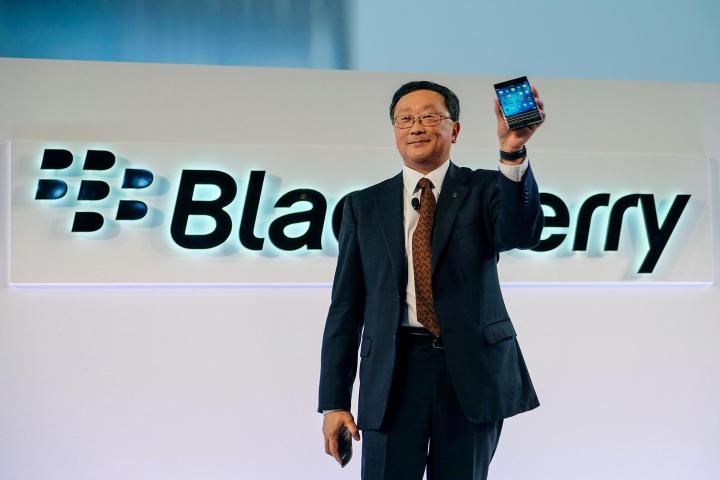
Over the years, BlackBerry’s business model has shifted to one that prioritizes enterprise and governments, posing the question about why BlackBerry continues to make smartphones. Chen answered by arguing that there are still a large number of customers that care about security.
“I can only make [the] iPhone so much more secure, but I can’t make it as secure as a BlackBerry device,” said Chen. “If you look at the U.S. Army, they’re still rolling out all BlackBerry. If I tell them there are no more phones, I lose that account. The question is how do you make phones profitable at the volume those people represent?”
Chen believes that BlackBerry can build on the relatively small market share it has now, in order to make its smartphone business profitable. Chen hinted at this same plan during BlackBerry’s fiscal results call back in March. The CEO then said the company would focus on “revenue stabilization,” after it surprised Wall Street by recording a profit.
Even though Chen didn’t reveal the specifics of his strategy, it seems like BlackBerry will continue to focus on its security features. It’s focusing on what BlackBerry does best that has allowed the company to remain a top choice among governments, law enforcement agencies, and corporations. In addition, we should continue to see interesting form factors for its smartphones in the very near future, including a possible successor to the very box-like BlackBerry Passport.
Whether this translates to success for BlackBerry in the consumer market is to be determined, though Chen sure seems very confident.


